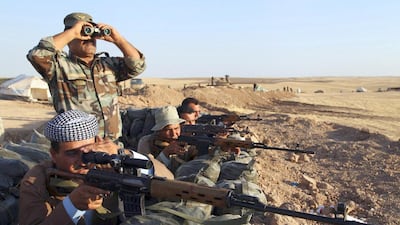The news that the United States, the UK, France and the European Union have all pledged to offer arms to the Kurds in the north of Iraq in order to allow them to face the threat of the Islamic State is, of course, good news. The gratuitous barbarism of the Islamic State in Iraq has been displayed over social media and its brutal treatment of Iraq’s minorities, especially Christians and Yazidis, is horrifying. Anything that allows the Kurds and other Iraqis to protect themselves from that is welcome.
And yet western intervention in the region rarely ends well. That is not, in fact, because armed intervention is always catastrophic – indeed it can create conditions for a political solution – but because the West too often looks at only short-term discrete goals and ignores the wider picture.
This is the case with their arming of the Iraqi Kurds. Although the US and EU have pledged to “consult” with Iraq’s central government in Baghdad, the speed with which they were able to take the decision stands in marked contrast to their feet-dragging over Syria, Gaza and Sunni protests in western Iraq. When it comes to carving out spheres of interest, it seems, the West cannot deliver weapons fast enough.
Nor will the arming of the Kurds only allow them to defend themselves. The Kurds have been explicit that their aim is to take over the entire north of Iraq, including oilfields that ought to belong to the Iraqi people as a whole, and carve out a state. Arms will help them do so. That will have a knock-on effect on the rest of Iraq, on Syria and, especially, on Turkey, a key member of Nato.
No one should doubt that the Kurds need the weapons to defend themselves. But this commitment from the West cannot be open-ended. If Iraq’s incoming prime minister Haider Al Abadi truly presents a unified front against the Islamic State, then arms should go to Baghdad, not to the north. If, on the other hand, the western powers seek to aid the Kurds in their secession, then they ought to say so. Aiding the fragmentation of Iraq by giving weapons to only one part of the country will have a long-term effect.
The sundering of Iraq will only create more problems. Especially now that Syria is in fragments, another group pushing to break-up an Arab state is a recipe for chaos. Iraq may not be perfect, but it still exists as a state. The West should avoid actions that could imperil that existence.

